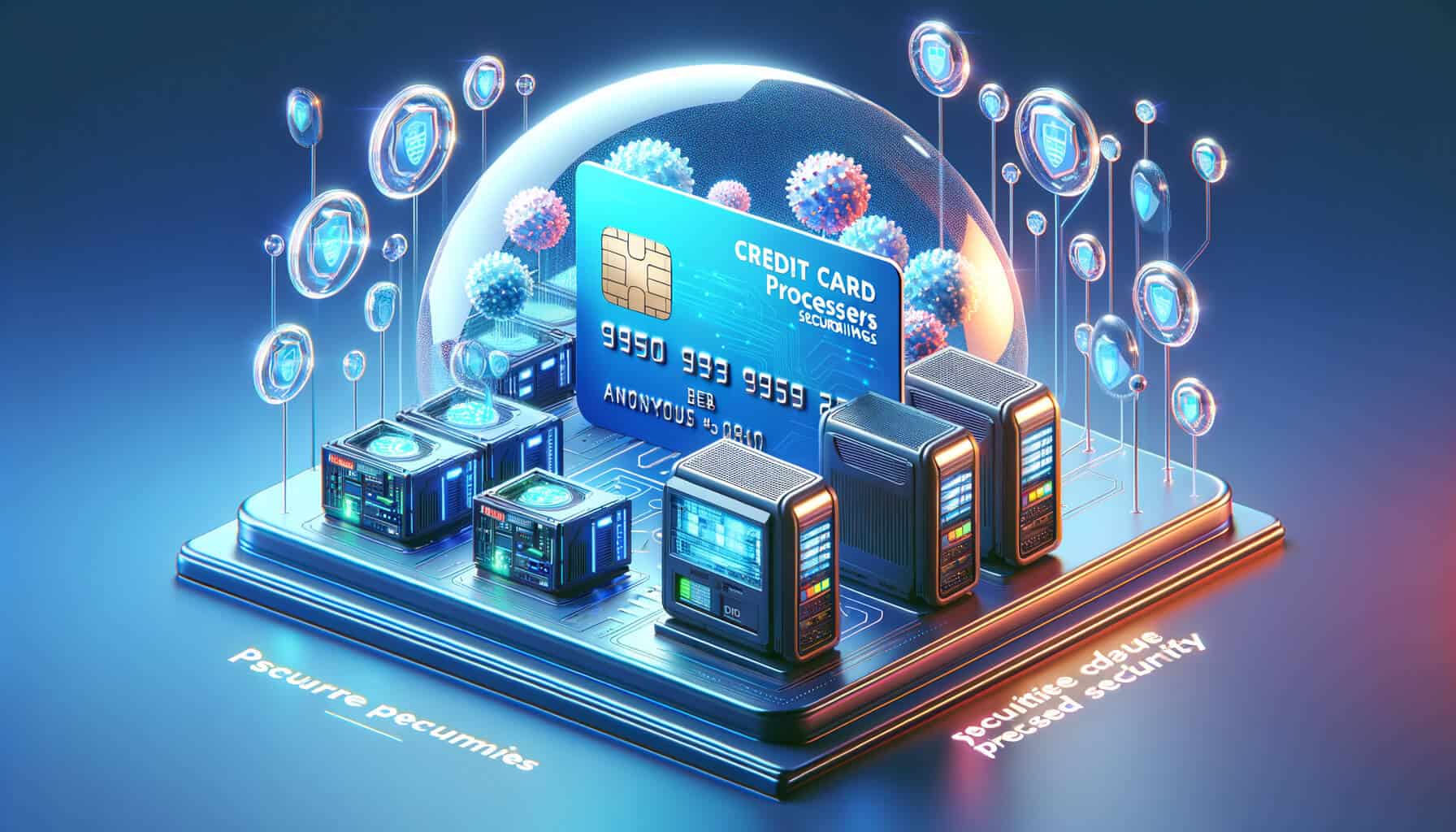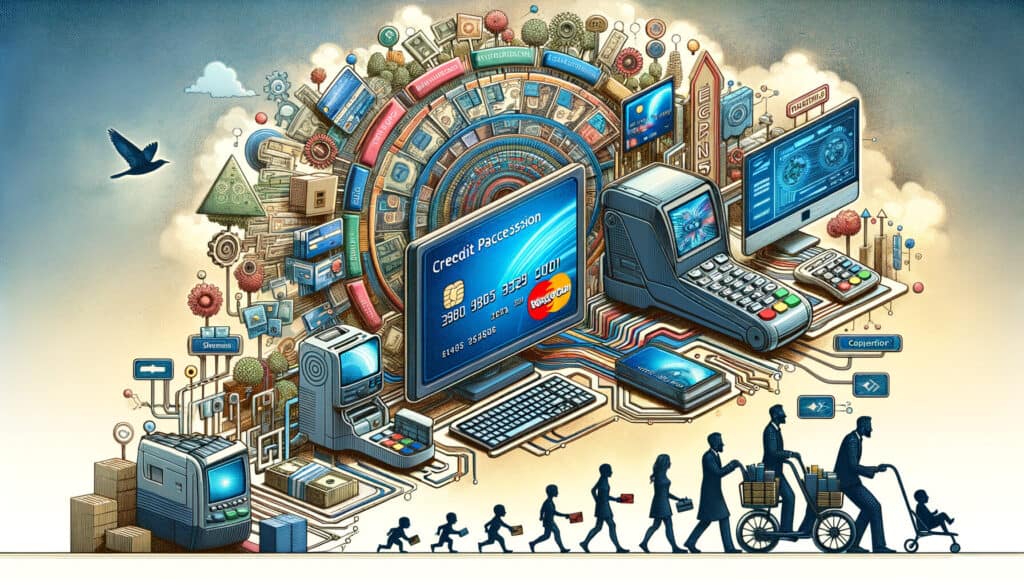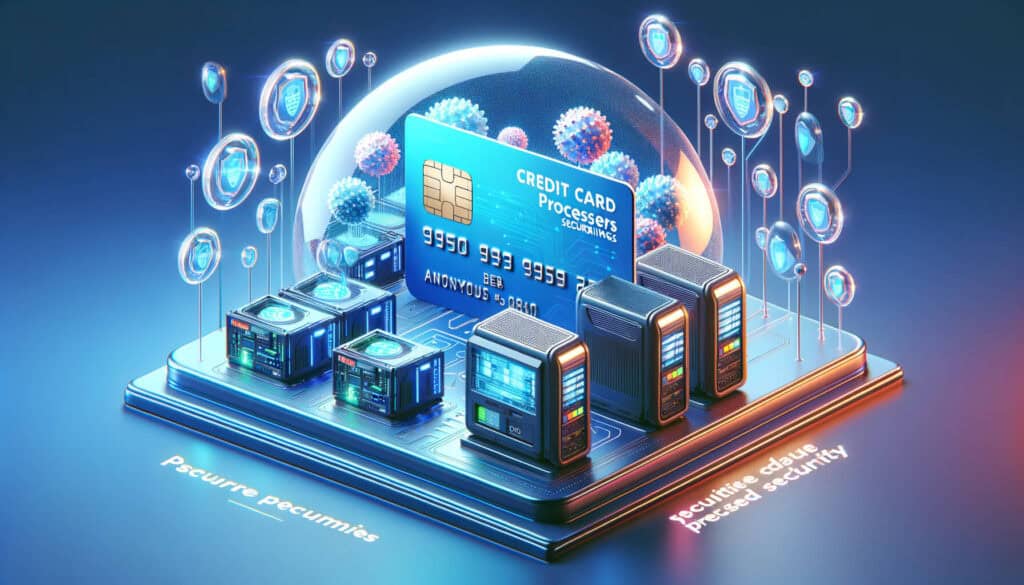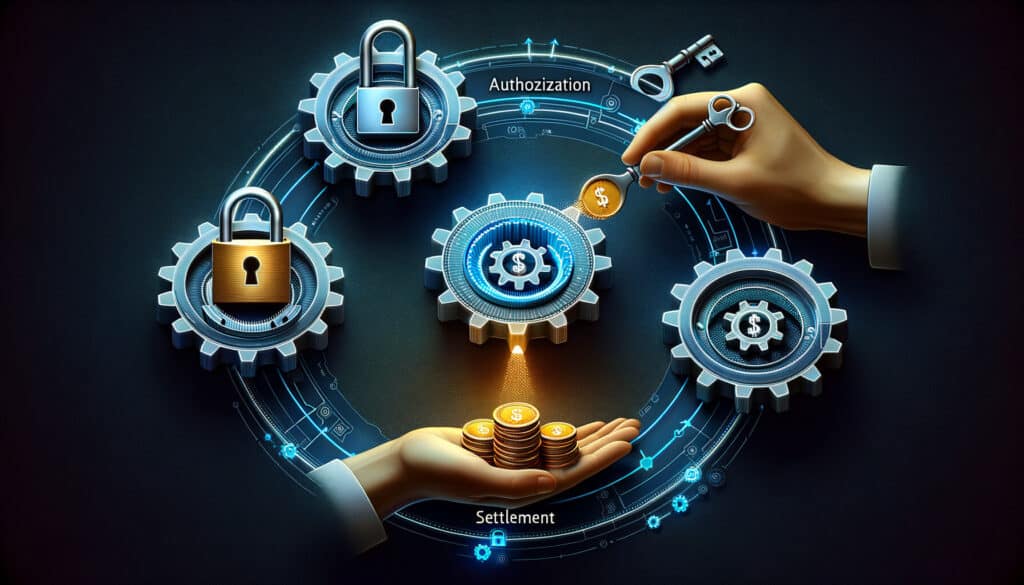
By Amanda Hoglund November 10, 2024
In today’s digital age, credit card processors play a crucial role in facilitating modern transactions. These processors act as intermediaries between merchants, customers, and financial institutions, ensuring smooth and secure payment processing. With the rise of e-commerce and the increasing reliance on electronic payments, understanding the role of credit card processors is essential for businesses and consumers alike.
How Credit Card Processors Facilitate Modern Transactions
Credit card processors enable businesses to accept credit card payments from customers. When a customer makes a purchase using their credit card, the transaction details are securely transmitted to the credit card processor. The processor then verifies the customer’s information, checks for available funds, and communicates with the issuing bank to authorize the transaction. Once authorized, the processor facilitates the transfer of funds from the customer’s account to the merchant’s account.
The Evolution of Credit Card Processing Systems

Credit card processing systems have come a long way since their inception. In the early days, transactions were processed manually, with merchants physically imprinting credit card details onto paper slips. These slips were then sent to the credit card company for processing. This manual process was time-consuming and prone to errors.
With advancements in technology, credit card processing systems have become more efficient and secure. The introduction of electronic payment terminals and online payment gateways revolutionized the industry, allowing for faster and more convenient transactions. Today, mobile payment solutions and contactless payments have further transformed the way we make payments, making credit card processing even more seamless.
Key Players in the Credit Card Processing Industry

The credit card processing industry is made up of various key players, each with a specific role in the payment ecosystem. These players include credit card associations such as Visa, Mastercard, and American Express, which set the rules and regulations for card acceptance. Acquiring banks, also known as merchant banks, provide businesses with the necessary infrastructure to accept credit card payments. Payment processors, on the other hand, handle the technical aspects of payment processing, including authorization, clearing, and settlement.
In addition to these key players, there are also independent sales organizations (ISOs) and payment service providers (PSPs) that act as intermediaries between merchants and payment processors. These entities offer additional services such as equipment leasing, customer support, and fraud prevention tools.
The Role of Credit Card Processors in Ensuring Security

One of the primary responsibilities of credit card processors is to ensure the security of transactions. With the increasing prevalence of data breaches and identity theft, protecting sensitive customer information has become paramount. Credit card processors employ various security measures to safeguard transactions, including encryption, tokenization, and fraud detection systems.
Encryption is the process of encoding sensitive data, such as credit card numbers, to prevent unauthorized access. When a customer enters their card details during a transaction, the information is encrypted before being transmitted to the processor. This ensures that even if the data is intercepted, it cannot be deciphered without the encryption key.
Tokenization is another security measure used by credit card processors. Instead of storing actual credit card numbers, processors generate unique tokens that represent the card information. These tokens are used for transaction processing, reducing the risk of data theft as the actual card details are not stored.
Fraud detection systems are also employed by credit card processors to identify and prevent fraudulent transactions. These systems analyze various factors, such as transaction patterns, IP addresses, and cardholder behavior, to detect suspicious activity. If a transaction is flagged as potentially fraudulent, the processor may decline the transaction or request additional verification from the customer.
Understanding the Transaction Process: Authorization, Clearing, and Settlement

The transaction process involves several stages, including authorization, clearing, and settlement. Credit card processors play a crucial role in each of these stages to ensure a seamless payment experience.
Authorization is the first step in the transaction process. When a customer makes a purchase, the credit card processor sends an authorization request to the issuing bank. The bank then verifies the customer’s account details, checks for available funds, and approves or declines the transaction. This process typically takes a few seconds and is crucial for preventing fraudulent transactions.
Once a transaction is authorized, the clearing process begins. During clearing, the credit card processor sends the transaction details to the appropriate credit card association, such as Visa or Mastercard. The association then routes the transaction to the issuing bank for further verification. If the transaction is deemed valid, the association deducts the transaction amount from the customer’s account and credits it to the merchant’s account.
Settlement is the final stage of the transaction process. During settlement, the funds from the customer’s account are transferred to the merchant’s account. This process typically occurs within a few business days, depending on the agreement between the merchant and the acquiring bank. Credit card processors play a crucial role in facilitating this transfer of funds, ensuring that merchants receive timely payments for their products or services.
Different Types of Credit Card Processors and Their Functions
There are various types of credit card processors available in the market, each catering to different business needs. Understanding the different types and their functions is essential when choosing a credit card processor for your business.
Traditional merchant account providers are one type of credit card processor. These providers offer businesses a dedicated merchant account, allowing them to accept credit card payments directly. Merchant account providers typically charge a percentage of each transaction as a processing fee.
Payment service providers (PSPs) are another type of credit card processor. PSPs act as intermediaries between merchants and payment processors, offering a range of services such as payment gateway integration, fraud prevention tools, and reporting capabilities. PSPs are often preferred by small businesses or those with limited technical resources, as they provide an all-in-one solution for payment processing.
Mobile payment processors have gained popularity in recent years, thanks to the widespread use of smartphones. These processors enable businesses to accept payments through mobile devices, eliminating the need for traditional payment terminals. Mobile payment processors often offer additional features such as inventory management and customer relationship management (CRM) tools.
Factors to Consider When Choosing a Credit Card Processor
When choosing a credit card processor for your business, several factors should be taken into consideration. These factors can vary depending on the nature of your business, transaction volume, and specific requirements. Here are some key factors to consider:
- Pricing: Different credit card processors have different fee structures. It’s important to understand the pricing model and calculate the overall cost of processing transactions, including any additional fees such as setup fees or monthly minimums.
- Security: Security should be a top priority when choosing a credit card processor. Look for processors that offer robust security measures such as encryption, tokenization, and fraud detection systems.
- Integration: If you already have an existing point-of-sale (POS) system or e-commerce platform, ensure that the credit card processor can seamlessly integrate with your existing setup. This will save you time and effort in setting up and managing your payment processing.
- Customer Support: Reliable customer support is crucial when dealing with payment processing issues. Look for processors that offer 24/7 customer support and have a reputation for providing prompt and helpful assistance.
- Payment Options: Consider the payment options that the credit card processor supports. Some processors may only accept major credit cards, while others may also support alternative payment methods such as digital wallets or mobile payments.
Common Challenges Faced by Credit Card Processors
While credit card processors play a vital role in modern transactions, they also face several challenges in their day-to-day operations. These challenges can impact the efficiency and security of payment processing. Here are some common challenges faced by credit card processors:
- Fraud Prevention: With the increasing sophistication of fraudsters, credit card processors must constantly update their fraud prevention systems to stay ahead. This includes implementing advanced algorithms and machine learning techniques to detect and prevent fraudulent transactions.
- Compliance: Credit card processors must comply with various industry regulations and standards, such as the Payment Card Industry Data Security Standard (PCI DSS). Ensuring compliance can be a complex and time-consuming process, requiring regular audits and security assessments.
- Technical Issues: Like any technology-based system, credit card processors can experience technical glitches or downtime. These issues can disrupt payment processing and result in frustrated customers and lost sales. Credit card processors must have robust backup systems and contingency plans in place to minimize downtime.
- Chargebacks: Chargebacks occur when a customer disputes a transaction and requests a refund from their credit card issuer. Credit card processors must handle chargebacks efficiently, ensuring that merchants are protected from fraudulent chargebacks while also providing a fair resolution for customers.
- Payment Security: As mentioned earlier, payment security is a significant concern for credit card processors. With the increasing prevalence of data breaches, processors must invest in robust security measures to protect customer information and prevent unauthorized access.
FAQs
Q1. What is a credit card processor?
A credit card processor is a company or service provider that facilitates the processing of credit and debit card transactions. They act as intermediaries between merchants, customers, and financial institutions, ensuring secure and efficient payment processing.
Q2. How do credit card processors work?
When a customer makes a purchase using their credit card, the transaction details are securely transmitted to the credit card processor. The processor then verifies the customer’s information, checks for available funds, and communicates with the issuing bank to authorize the transaction. Once authorized, the processor facilitates the transfer of funds from the customer’s account to the merchant’s account.
Q3. How do credit card processors ensure security?
Credit card processors employ various security measures to ensure the security of transactions. These measures include encryption, tokenization, and fraud detection systems. Encryption encodes sensitive data to prevent unauthorized access, while tokenization replaces actual card details with unique tokens. Fraud detection systems analyze transaction patterns and customer behavior to detect and prevent fraudulent activity.
Q4. What are the different types of credit card processors?
There are various types of credit card processors, including traditional merchant account providers, payment service providers (PSPs), and mobile payment processors. Each type caters to different business needs and offers different features and services.
Q5. How do I choose the right credit card processor for my business?
When choosing a credit card processor, consider factors such as pricing, security, integration, customer support, and payment options. Assess your business needs and requirements to find a processor that aligns with your goals and provides the necessary features and support.
Conclusion
Credit card processors play a vital role in modern transactions, enabling businesses to accept credit and debit card payments securely and efficiently. With the evolution of credit card processing systems and the increasing reliance on electronic payments, understanding the role of credit card processors is essential for businesses and consumers alike.
By ensuring the security of transactions, facilitating the authorization, clearing, and settlement process, and offering a range of services and features, credit card processors have become indispensable in today’s digital economy. As technology continues to advance, credit card processors will continue to evolve, providing businesses and consumers with even more convenient and secure payment options.